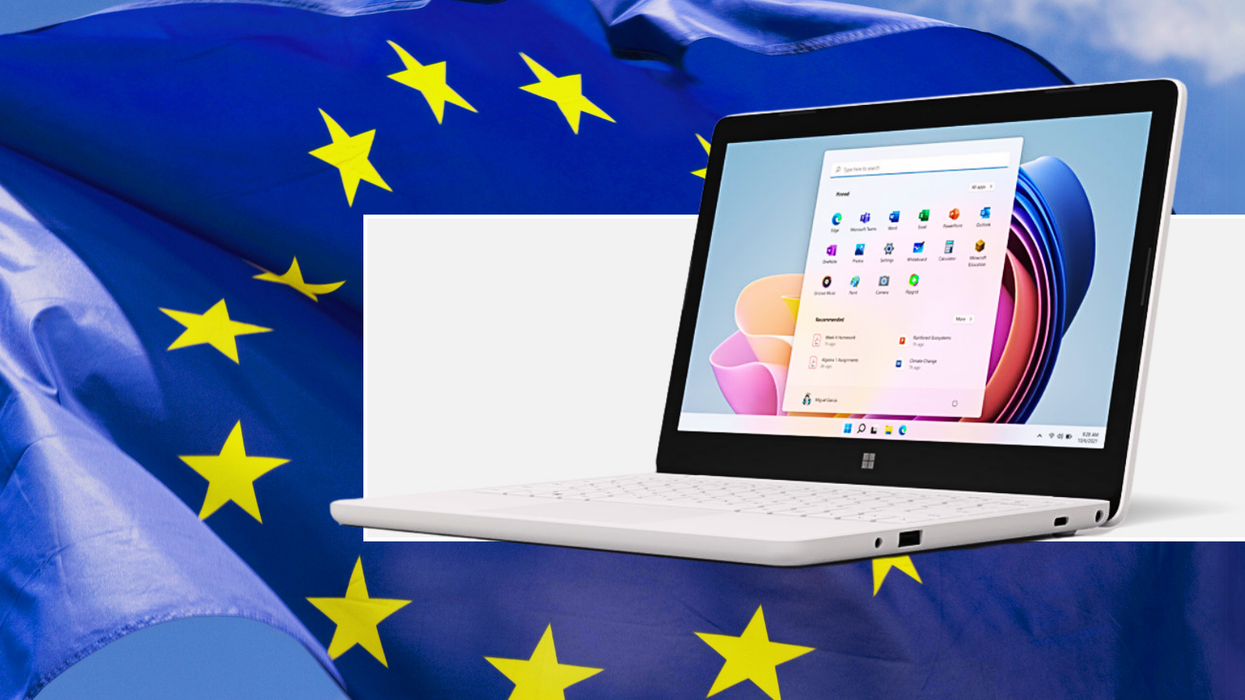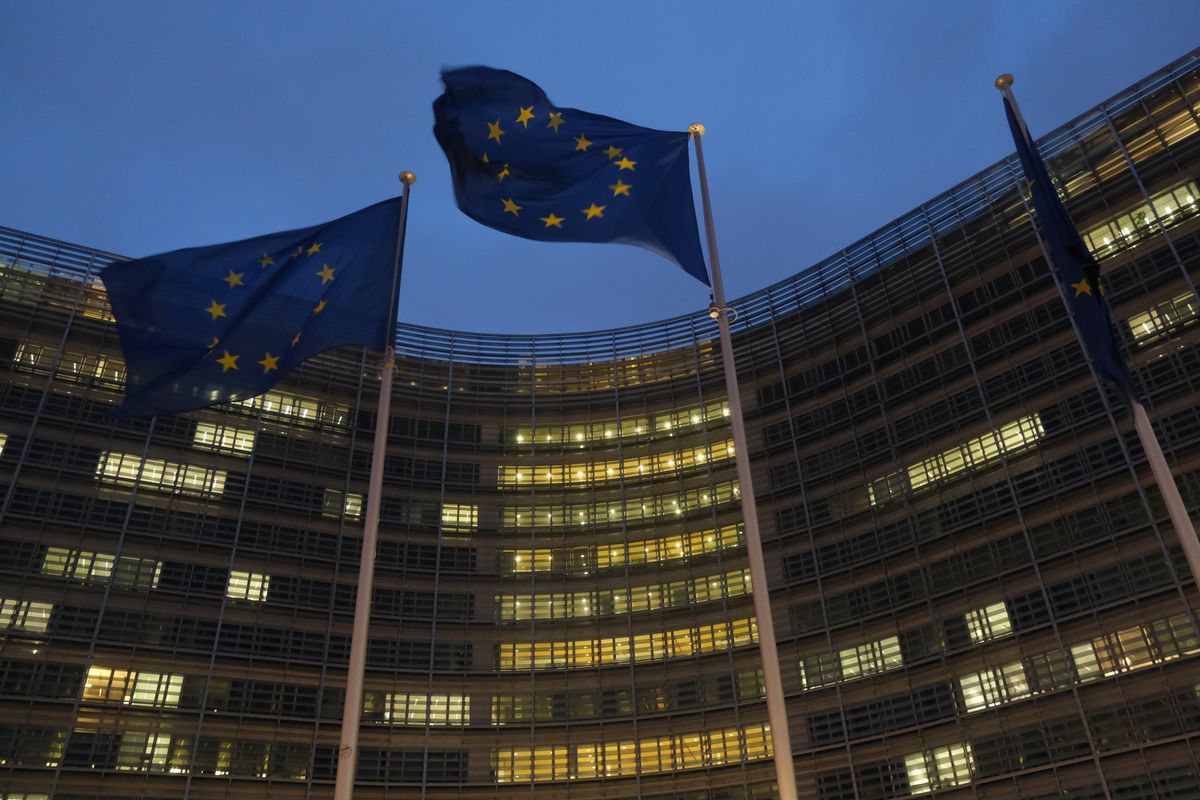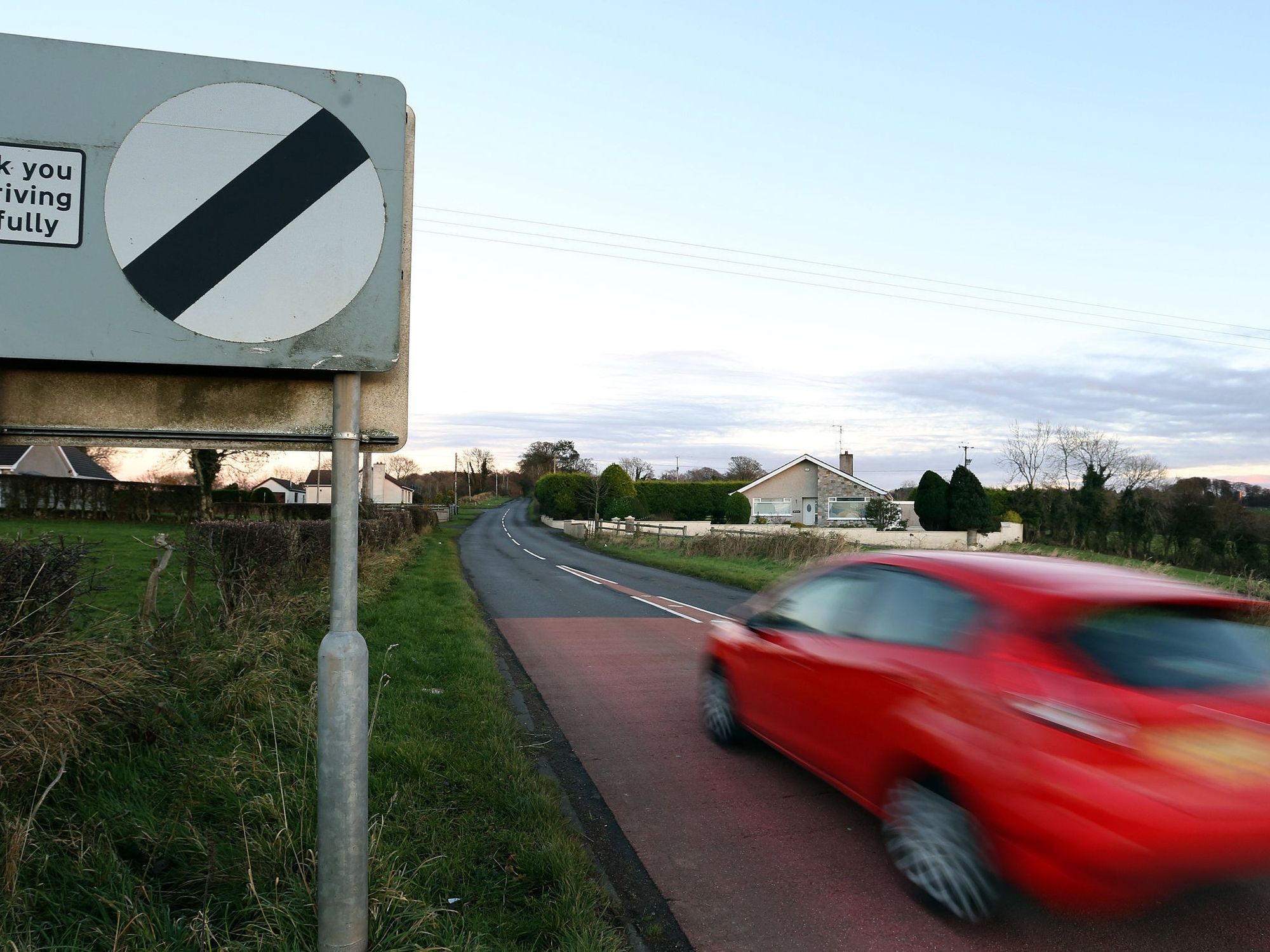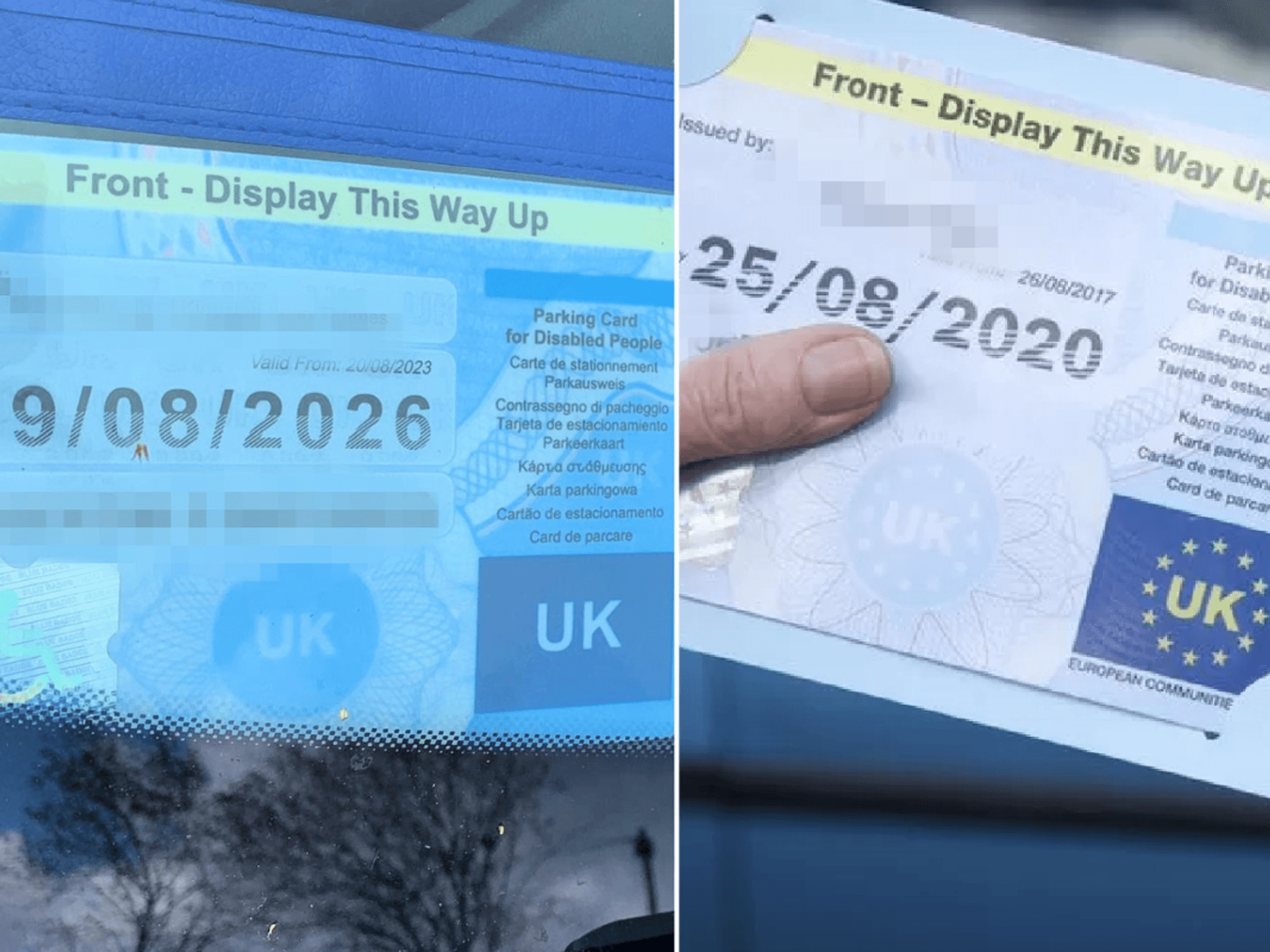Microsoft releases new versions of Windows 10 and Windows 11, but only for people living in EU countries

Surface Laptop SE, designed and sold by Microsoft to showcase its Windows 11 operating system, pictured inset, with the European Union flag in the background. The UK is no longer a member state following the 2016 Referendum
|GETTY IMAGES | MICROSOFT PRESS OFFICE

Roll out of modified operating systems will be completed by April, the US company says
- Microsoft has made several changes to comply with Digital Markets Act
- New versions of Windows 10 and Windows 11 are now available
- Only PC users living in 27 EU member states can download
- It will allow users to completely uninstall Bing and Microsoft Edge
- Third-party search engines and news feeds will be supported
Don't Miss
Most Read
Microsoft has released new iterations of its desktop operating systems, Windows 10 and Windows 11. But these new downloads are not available outside of European Union countries.
The new twists on the popular software, used on some 1.6 billion devices worldwide, were designed to comply with the EU’s Digital Markets Act (DMA) which came into force earlier this month. Lawmakers behind the DMA say it's designed to block large companies from abusing their dominant position to “gatekeep” and stop new players from entering the market.
It should spark increased competition in the digital space, the European Union claims.
The Digital Markets Act was approved in November 2022, but allowed companies until March 6, 2024 to comply with its strict new policies.
In the wake of that deadline, we’ve seen Apple launch a new version of iOS that allow iPhone owners to download software from outside of the App Store — enabling companies like Epic Games and Microsoft to run their own marketplaces on Apple devices for the first time.

The wealthiest multination companies are working hard to comply with the rules imposed by European lawmakers, but modified operating systems will be limited to users living in the 27 member states
|GETTY IMAGES
Entire categories of apps previously banned by Apple under its guidelines, like software that offered access to pornography and encouraged tobacco use, will now be accessible to iPhone and iPad users from alternative app marketplaces.
And it’s not just Apple that was singled out as a gatekeeper by European Union lawmakers — Microsoft was also forced to make changes to its software to continue operating in Europe.
In a blog post penned by Microsoft Head of the DMA Compliance Function Chris Nelson, the changes made to Windows 10 and Windows 11 to ensure compliance are outlined in detail.
- The Microsoft Edge web browser and the Bing search functionality have been redesigned so both can be completely removed from Windows. Until now, it was not possible to uninstall these two services using the standard Windows mechanisms available for all other software
- The Bing web search box that lives within the Windows taskbar could soon be replaced with alternatives from Google, DuckDuckGo, and other search firms. In the EU, Microsoft has enabled and provided instructions for third-party web search applications to offer web search services through the search box and to rely on any browser of their choice to show a search results page in the same way as the Microsoft Bing web search application
- Microsoft has also opened up its News Feed panel within Windows Widgets. Until now, this was only powered by Microsoft and couldn’t be swapped with another provider. Microsoft has now submitted information to developers on how to built all-new third-party news feeds in the Windows Widgets panel in the same way as Microsoft Edge
- Microsoft also modified the sign-in experience on Windows. Prior to the DMA, Windows automatically signed users into other Microsoft products and services that combined data, including into Edge, Bing, and the Microsoft “Start” service (news, weather, etc.) when users are first signed into Windows. Windows will no longer automatically sign users into these services.
These might sound like small points, but a number of these features — like the ability to start a Google search directly from the Windows taskbar, or swap out Bing news feed for a competitor —will likely solve pain points that users have moaned about for years.
Microsoft hasn’t committed to rolling out any of the changes forced by the DMA beyond the borders of the European Union. For now, those living in the UK, United States, Canada, Australia, and beyond have no choice but to look on jealously.
It’s not just tweaks to functionality within Windows 10 and Windows 11, the Digital Markets Act has also pushed Microsoft to change several of its data collection policies. Head of the DMA Compliance Function Chris Nelson writes: “Microsoft has put in place new data handling practices and controls to ensure that any data collected from Windows PCs in the EEA about non-Microsoft applications running on Windows — for example, data collected for the purpose of detecting bugs that impact those applications or Windows — is not used for any competitive purpose against the providers of those applications.”
LATEST DEVELOPMENTS
- O2 wants to buy your old console to drop your monthly bills
- Microsoft confirms end of support for Windows 10's penultimate update
- Millions of Windows PC owners on red alert over new cybercrime gang
“Similarly, Microsoft redesigned Windows data consent flows to make clear when Microsoft combines Windows data with data from other Microsoft products and services and it will obtain consent for those data combinations, including issuing new consent screens to existing Windows users where required,” Microsoft’s Chris Nelson adds.
The updated EU-only versions of Windows 10 and Windows 11 are rolling out across the European Union’s 27 member states now. These new versions will download and update automatically.
Microsoft says it anticipates finishing the rollout "by early April 2024”.










